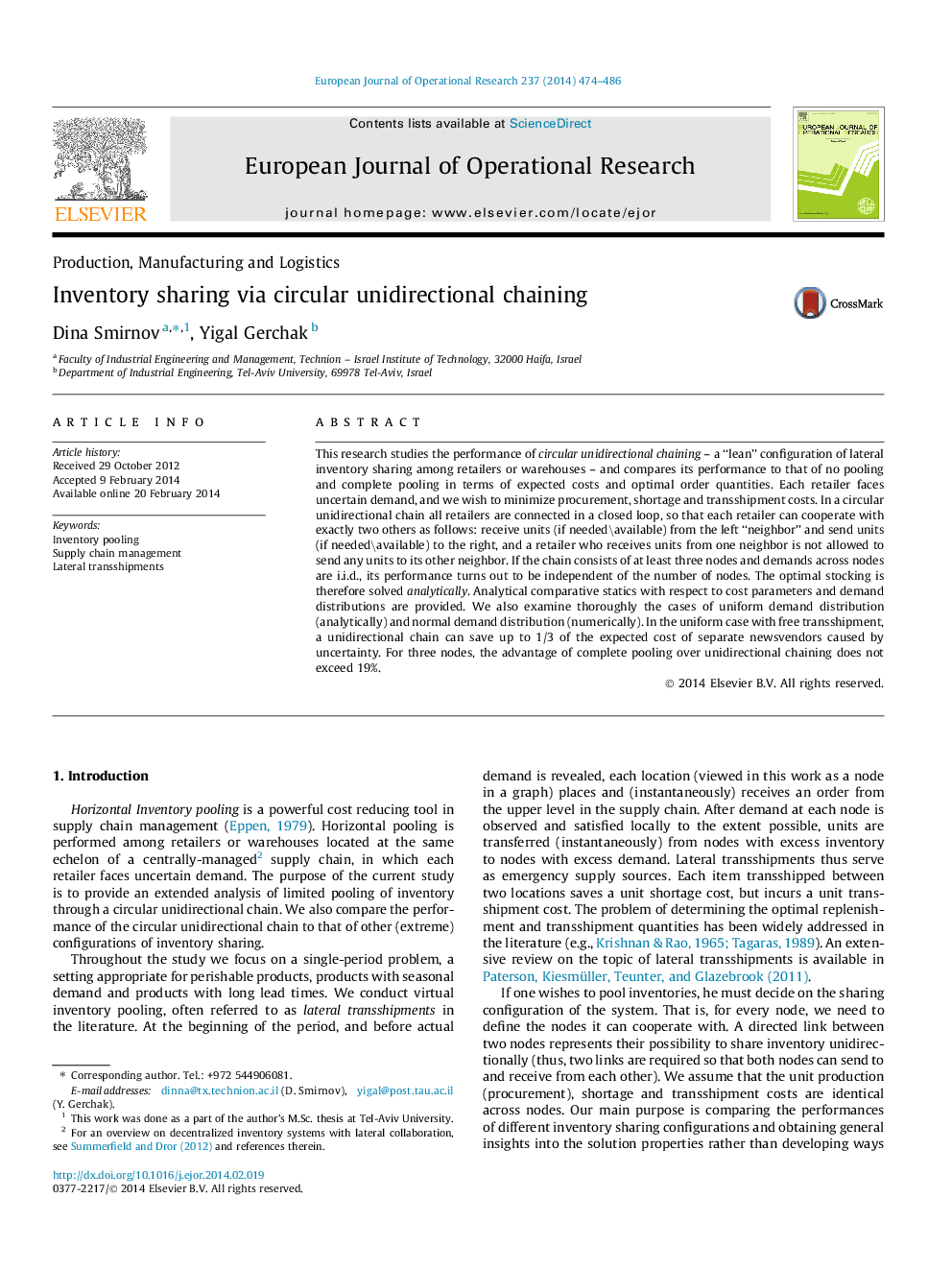| Article ID | Journal | Published Year | Pages | File Type |
|---|---|---|---|---|
| 478135 | European Journal of Operational Research | 2014 | 13 Pages |
•We studied inventory pooling through a circular unidirectional chaining (UDC).•An optimality condition is derived analytically and insights are provided.•UDC is effective compared to no pooling while requiring few transportation links.•For some sets of parameter values, UDC performs close to complete pooling.•Performance of symmetrical UDC is independent of the number of locations beyond two.
This research studies the performance of circular unidirectional chaining – a “lean” configuration of lateral inventory sharing among retailers or warehouses – and compares its performance to that of no pooling and complete pooling in terms of expected costs and optimal order quantities. Each retailer faces uncertain demand, and we wish to minimize procurement, shortage and transshipment costs. In a circular unidirectional chain all retailers are connected in a closed loop, so that each retailer can cooperate with exactly two others as follows: receive units (if needed⧹available) from the left “neighbor” and send units (if needed⧹available) to the right, and a retailer who receives units from one neighbor is not allowed to send any units to its other neighbor. If the chain consists of at least three nodes and demands across nodes are i.i.d., its performance turns out to be independent of the number of nodes. The optimal stocking is therefore solved analytically. Analytical comparative statics with respect to cost parameters and demand distributions are provided. We also examine thoroughly the cases of uniform demand distribution (analytically) and normal demand distribution (numerically). In the uniform case with free transshipment, a unidirectional chain can save up to 1/3 of the expected cost of separate newsvendors caused by uncertainty. For three nodes, the advantage of complete pooling over unidirectional chaining does not exceed 19%.
